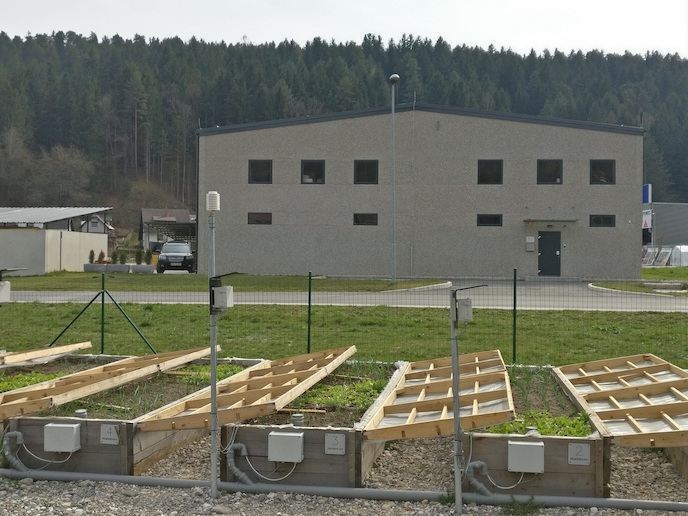Sustainable remediation technology for detoxing soil
Human activity unleashes large quantities of toxic metals into the environment. Urban soils, for example, have collected decades of lead pollution from road traffic emissions. Alarmingly, the bioaccumulation of these nondegradable heavy metals presents a significant threat to the food chain, especially for children. The EU-supported ReSoil project, hosted by ENVIT, has developed a demonstration plant for soil remediation technology which removes toxic metals from contaminated soils at the rate of 6 tonnes per day. The prototype, co-financed by the EU LIFE Programme, is operating as a demonstration plant in a contaminated area of Slovenia, with vegetable crops grown in an adjacent garden as evidence of its efficacy.
Sustainable remediation
Whilst many countries have prioritised the clean up and restoration of contaminated land, there are still no sustainable remediation technologies for heavily lead-contaminated soils. Excavation and landfilling remains the primary solution in over 80 % of cases, despite its economic and environmental cost. The ReSoil batch-process technology excavates soil for transportation to the remediation plant, where it is washed with an EDTA solution using an innovative patented process. This involves the recycling of all process solutions, which are then used in subsequent batches. Cheap and commonly available materials are used and recycled: the amount of dry waste produced is only 1 % of the weight of the remediated soil. The soil is then returned to the excavation site and can be used for food production. Metal concentrations were measured in every soil batch before and after treatment. Vegetables were tested and concentrations of metals in various plants grown on both contaminated and remediated soil were compared. The team found that plants grown on remediated soil had 5 to 14 times lower lead content and 4 to 8 times less cadmium, meeting EU safety limits. Whereas, lead and cadmium concentrations in contaminated soil-grown plants exceeded the limits by three times for the former and five times for the latter. “Testing the ReSoil technology on different, heavily contaminated soils confirmed its suitability for different soil types,” says Neža Finžgar, project coordinator. “Crucially, we also demonstrated safe remediated soil vegetable production, with results confirmed by laboratory tests.”
Healthy soil for future generations
ReSoil supports broad EU initiatives, such as the Green Infrastructure Strategy and the Seventh Environment Action Programme (7EAP), especially in regards to its objective ‘to enhance the sustainability of EU cities’, with renewal of soil function a key component. It also contributes to closely aligned ambitions such as the Soil Thematic Strategy which creates a common legal framework to ensure that soils stay healthy for future generations. With the development phase of ReSoil completed, ENVIT will continue demonstration and commercialisation activities, which, alongside a mobile demonstrator, includes marketing designs for an industrial scale plant, with capacity for 100 tonnes of soil per day. Additionally, the company is part of a consortium selected as one of six awardees of Phase 1 of the POSIDON Public Procurement procedure. “Next will be the development of various ReSoil applications for different substrates where metals present a problem during treatment or disposal,” says Finžgar. “But alongside this, work will have to be undertaken on social acceptance of the technology, both by the public and by authorities.”
Keywords
ReSoil, toxic, heavy metals, soil, food, contaminated, remediated, vegetable, plants, pollution, waste



